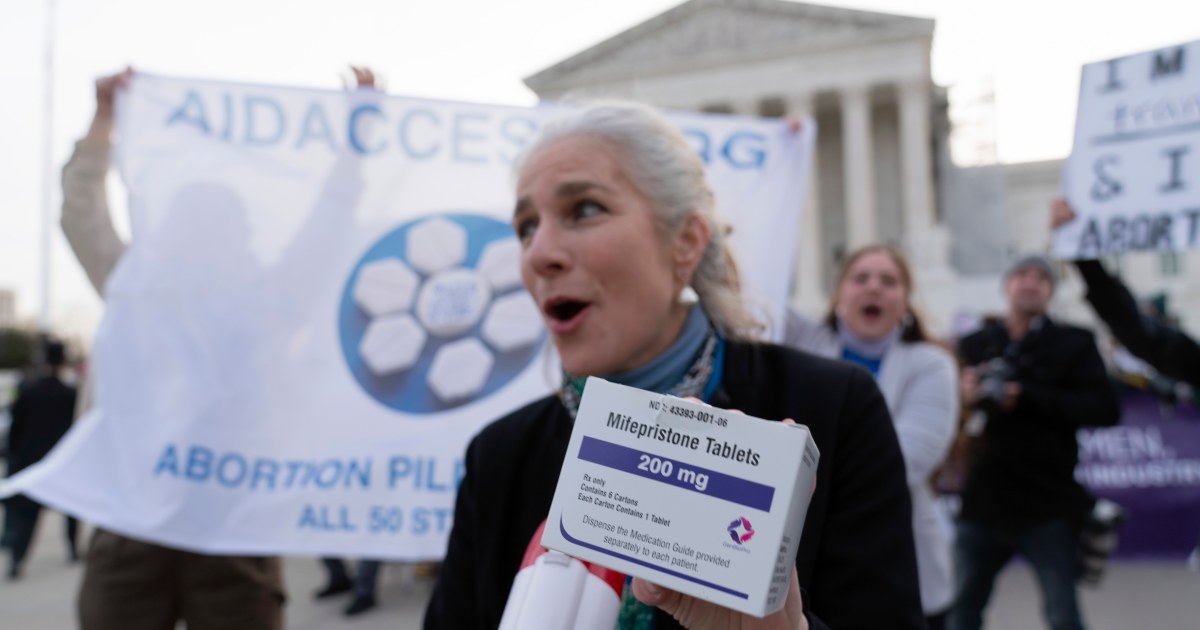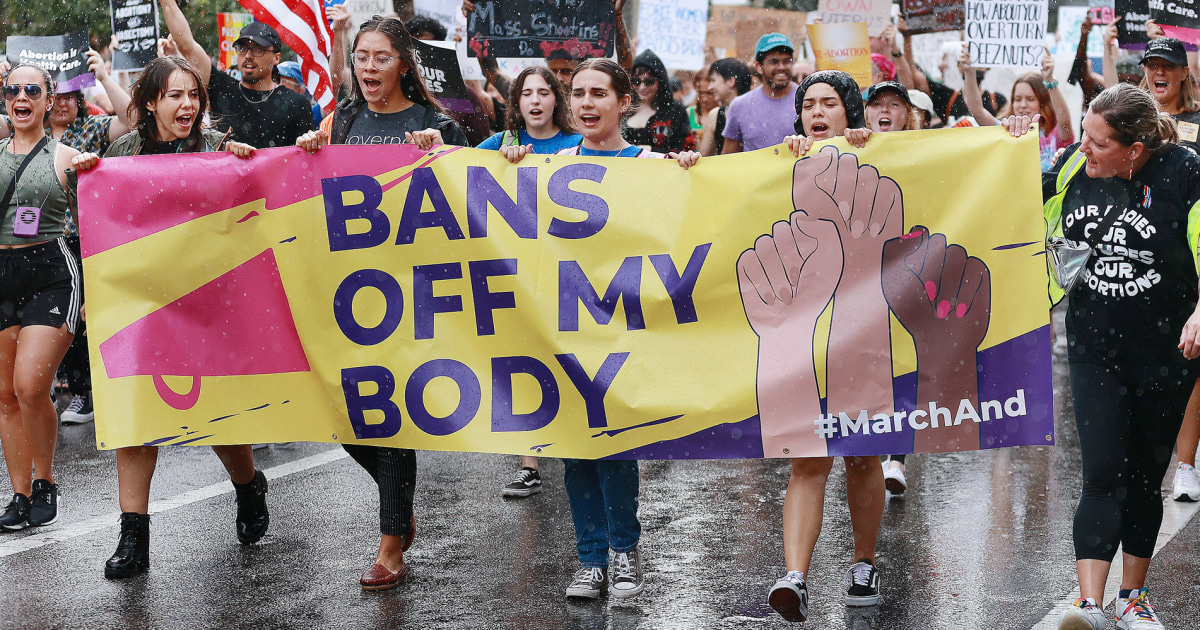The United States Department of Justice plans to sue Texas over its new law that bans virtually all abortions in the state, with no exceptions for cases of incest or rape, The Wall Street Journal reported Wednesday.
The lawsuit could arrive this Thursday, although it is also possible that it will be postponed, according to the newspaper, which cites sources familiar with the case.
[Eight keys to understanding why the Texas anti-abortion law and the Supreme Court decision are so controversial]
The government of President Joe Biden is under pressure from feminist groups and some Democrats, who have asked the Justice Department to do everything possible to curb restrictions on access to abortion in the southern state.
The new Texas law, which took effect a week ago, prohibits abortion at six weeks' gestation, when the fetal heartbeat can be detected, although in many cases many women do not even know they are pregnant. There are no exceptions in cases of incest or rape.
In addition, it allows individuals to file civil lawsuits against anyone who helps a pregnant woman to have an abortion if they believe they are violating the ban, and offers damages of up to $ 10,000 to the plaintiff if he wins the lawsuit.
On Monday, US Attorney General Merrick Garland said he was urgently exploring all options to respond to Texas law, in order to "protect the constitutional rights of women and others, including abortion ", legalized by the US Supreme Court in 1973.
[The governor of Texas defends the restrictive anti-abortion law and promises to "eliminate the rapists"]
Meanwhile, she claimed that the government plans to apply the Freedom of Access to Clinics Act (FACE), a 1994 federal rule that protects free access to clinics that perform abortions, and punishes women those who intentionally cause material damage to centers that offer reproductive services.
"The FACE Act prohibits the use or threat of force and physical obstruction that harms, intimidates, or interferes with a person attempting to obtain or provide reproductive health services. It also prohibits willful damage to property from a facility that provides services. reproductive health, "the statement said.
President Joe Biden at the White House, Wednesday, Sept. 8, 2021.AP Photo / Evan Vucci
However, that measure could be limited by the fact that the law is geared more towards physical acts of intimidation or violence than lawsuits, explained Mary Anne Franks, a constitutional scholar and professor at the University of California School of Law. Miami, to The Associated Press news agency.
[Texas' restrictive abortion law will hit Latina women hard, expert says]
"The nefarious cunning" of Texas law is that "nothing can be done until someone actually tries to use this law. And that would be too late," he said.
And even if an abortion clinic - or people who help a woman get an abortion - were successful in defending a lawsuit, that wouldn't block a pile of future complaints.
A Texas judge's decision last week to temporarily protect some abortion clinics from being sued by the state's largest anti-abortion group, for example, did not affect any other groups.
"That raises real questions about the efficacy of any action that the Justice Department can take," Franks told the AP.
With cries in favor and prayers against, they react in Mexico to the decriminalization of abortion
Sept.
7, 202101: 54
It is not clear what the Justice Department's lawsuit could consist of, although it is expected to be based on the argument that Texas law illegally interferes with federal government interests, according to the New York newspaper.
Legal experts cited by the newspaper warned that the way in which the law is designed, which places the burden of its implementation on private citizens seeking rewards and not on Texas authorities, could reduce the federal government's options to win. litigation, because it is not clear who should be sued.
[No, it is false that there is an increased risk of miscarriage from the COVID-19 vaccine]
The same experts pointed out that, if the Justice Department wants to boycott the law, it could try to restrict federal funds to Texas, or find out if there are federal government facilities in Texas where abortions can be performed, since they would escape state jurisdiction.
Jonathan Turley, a professor of constitutional law at George Washington University School of Law, believes the law is likely to eventually be overturned in court, as it prohibits abortion long before the fetus is viable outside the womb.
"It is very likely that it will be declared unconstitutional. The drafters themselves understood that they have established a line far below the existing jurisprudence to prohibit abortions, It is likely that the courts will do a quick job with the law of Texas", to the agency of AP news.
Last week, hours after the Texas law came into effect, the United States Supreme Court, with a reinforced conservative majority, decided not to block the legislation, although it did not assess whether it was constitutional or not.





/cloudfront-eu-central-1.images.arcpublishing.com/prisa/OCS7V4Q6YKB6UMI76BXPPNGQJE.jpg)



